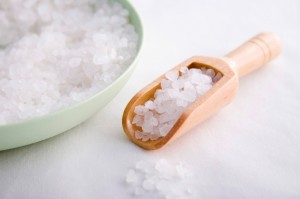 Salt comes from three sources: the ocean, from a salt mine, or from land that was once a sea bed.
Salt comes from three sources: the ocean, from a salt mine, or from land that was once a sea bed.
Sea salt, in particular, is the purest of all salts and has not gone through any processing to alter the makeup of the salt. Further, it contains many essential trace minerals that your body needs in order to stay healthy. This natural salt is healthier than the iodized salt available in the market.
Making Sea Salt
An essential skill to know for long term survival is how to make salt. Luckily, 39 percent of the U.S. population is fortunate enough to live on the coast, where saltwater is readily available. This skill is one of the easiest to learn and would be a great barter item.
The process itself involves boiling water down and eventually turn to the sun to finish the process off. This process takes multiple days in order to allow the salt deposits to dry out completely. The only downside to this method is it will take hours to boil the water down, and requires fuel usage.
To make solar salt, you will collect seawater and boil the water down 50 percent until the water becomes cloudy. From there, you will dry these deposits out from the sun.
- Look for clean, fresh seawater where it is clear in color.
- Strain seawater through a fine sieve or muslin to get rid of any debris. If you are in a pinch, use your sock.
- Boil the water until 50 percent of the water evaporates, stirring occasionally.
- The deposits at the bottom will have the consistency of wet sand, pour it onto a baking sheet and leave it for five days, stirring once a day. Place a clean window screen ver the baking sheet or casserole dish to keep debris out.
- Allow the salt to dry out fully and store it in an airtight container.
- For every 4 gallons of water, you will get around 2 1/2 cups – 4 cups of salt.
